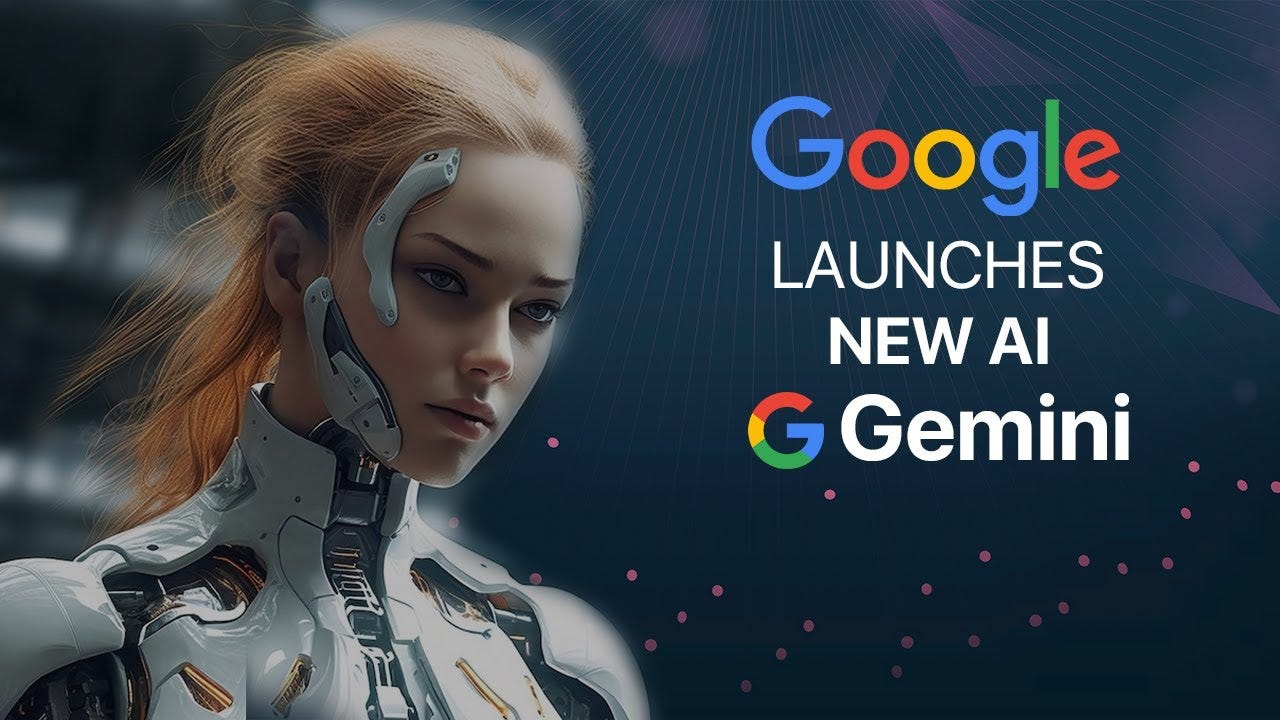"Google Unleashes Gemini AI: A Game-Changer That Outperforms OpenAI! Find Out How it Dominates ChatGPT and What It Means for the Future of Tech!"
Thursday witnessed a surge in Google shares following the announcement of their cutting-edge artificial intelligence model, Gemini. This latest development, revealed at the annual developers' conference I/O in May, is touted to outperform OpenAI's GPT-3.5, though no explicit comparisons with OpenAI's GPT-4 were shared by Google executives.
Gemini 1.0 marks a significant stride in Google's AI capabilities, leveraging multimodal functionalities that enable the simultaneous comprehension and utilization of data from diverse sources, including text, images, audio, and video. In a strategic move to challenge ChatGPT's dominance in the generative AI space, Google aims to position Gemini as a formidable contender.
So, what sets Gemini apart, and how does it integrate into Google's existing ecosystem?
Gemini 1.0 stands as Google's latest multimodal machine learning model, showcasing the ability to generalize, understand, and operate across different types of information—text, code, audio, image, and video. In contrast to traditional unimodal AI systems, Gemini, as a multimodal system, is designed to process multiple forms of sensory input simultaneously, akin to how the human brain perceives its environment. This approach enhances the AI system's ability to comprehensively understand data by leveraging multiple sensors to observe the same information.
Google has optimized the Gemini 1.0 model for three distinct sizes:
1. Gemini Ultra:
Gemini Ultra represents the largest and most capable system based on the Gemini 1.0 model. Specifically tailored for highly complex tasks such as advanced reasoning, coding, and solving mathematical problems, Gemini Ultra is set to be available for select customers, developers, partners, and safety experts for early experimentation and feedback. Google plans to roll it out to developers and enterprise customers in the early part of the following year. Additionally, an upgraded version of Google's AI-based chatbot, "Bard Advanced," will provide users access to Gemini Ultra's capabilities.
2. Gemini Pro:
The Gemini Pro system utilizes the Gemini 1.0 model to execute various tasks, including planning and reasoning. Starting December 13, developers and enterprise customers can access Gemini Pro via the Gemini API in Google AI Studio or Google Cloud Vertex AI. Google is also integrating Gemini Pro into the current version of Bard in over 170 regions and territories. Initially available in English, plans for expanding the Gemini Pro-powered Bard chatbot are on the horizon.
3. Gemini Nano:
Gemini Nano has been finely tuned to efficiently handle on-device AI tasks. Google emphasizes its ability to run offline on Android-based smartphones and other devices. The rollout of Gemini Nano on the Pixel 8 Pro smartphone is underway, engineered to seamlessly run the on-device AI model. Currently powering features like Summarize in the Recorder app, Gemini Nano is set to be incorporated into Smart Reply for Gboard, starting with WhatsApp. The integration of Gemini Nano-powered Gboard features will extend to more messaging apps in the coming year.
In the realm of artificial intelligence, Google's Gemini signifies a noteworthy advancement, prompting a surge in investor confidence. However, lingering questions persist regarding the long-term monetization strategy for this cutting-edge technology. As Google continues to push the boundaries of AI innovation, the market watches closely for further developments and the unfolding impact on the tech giant's future.









